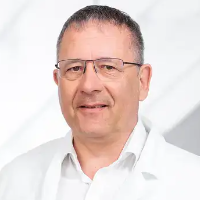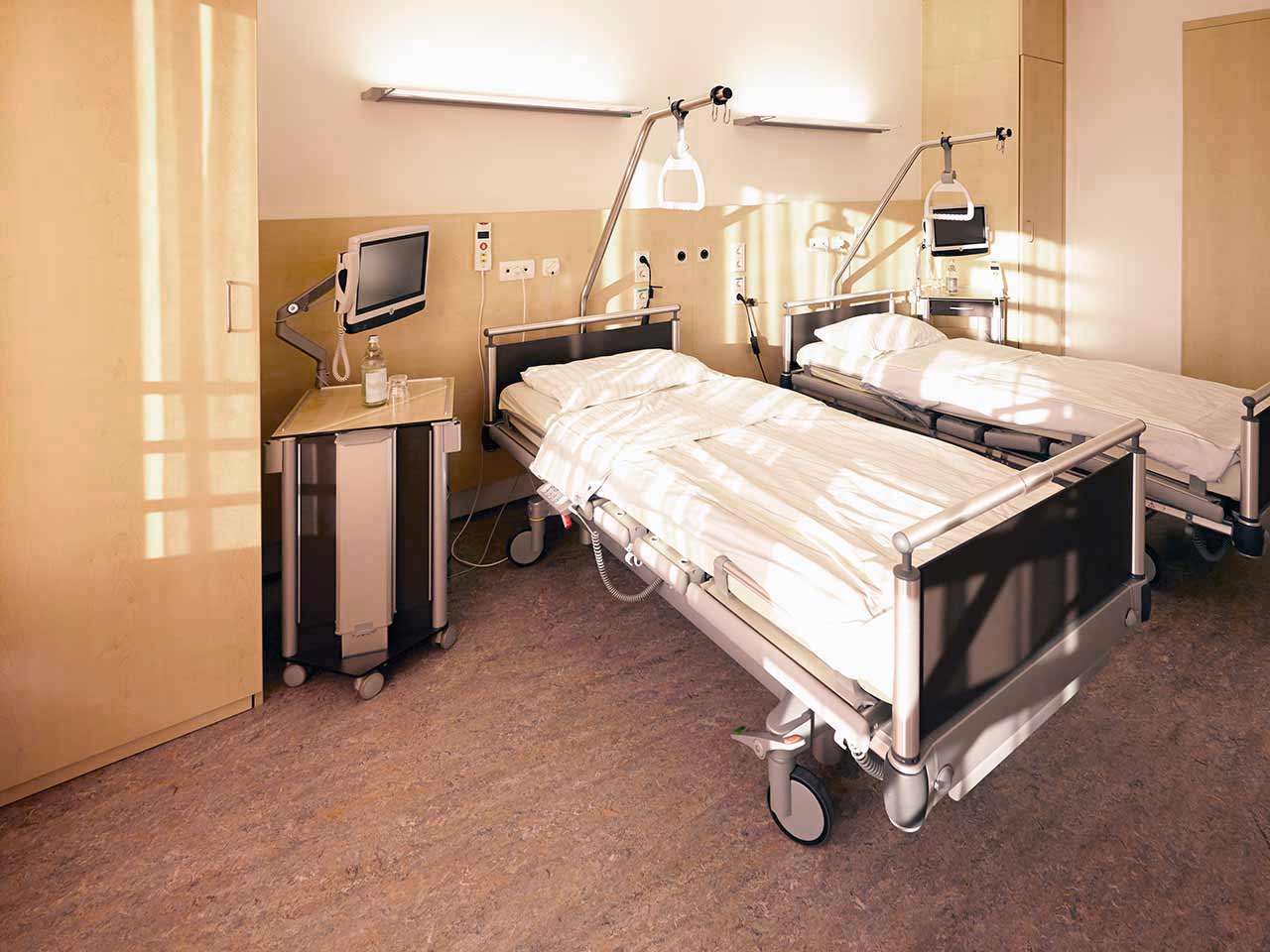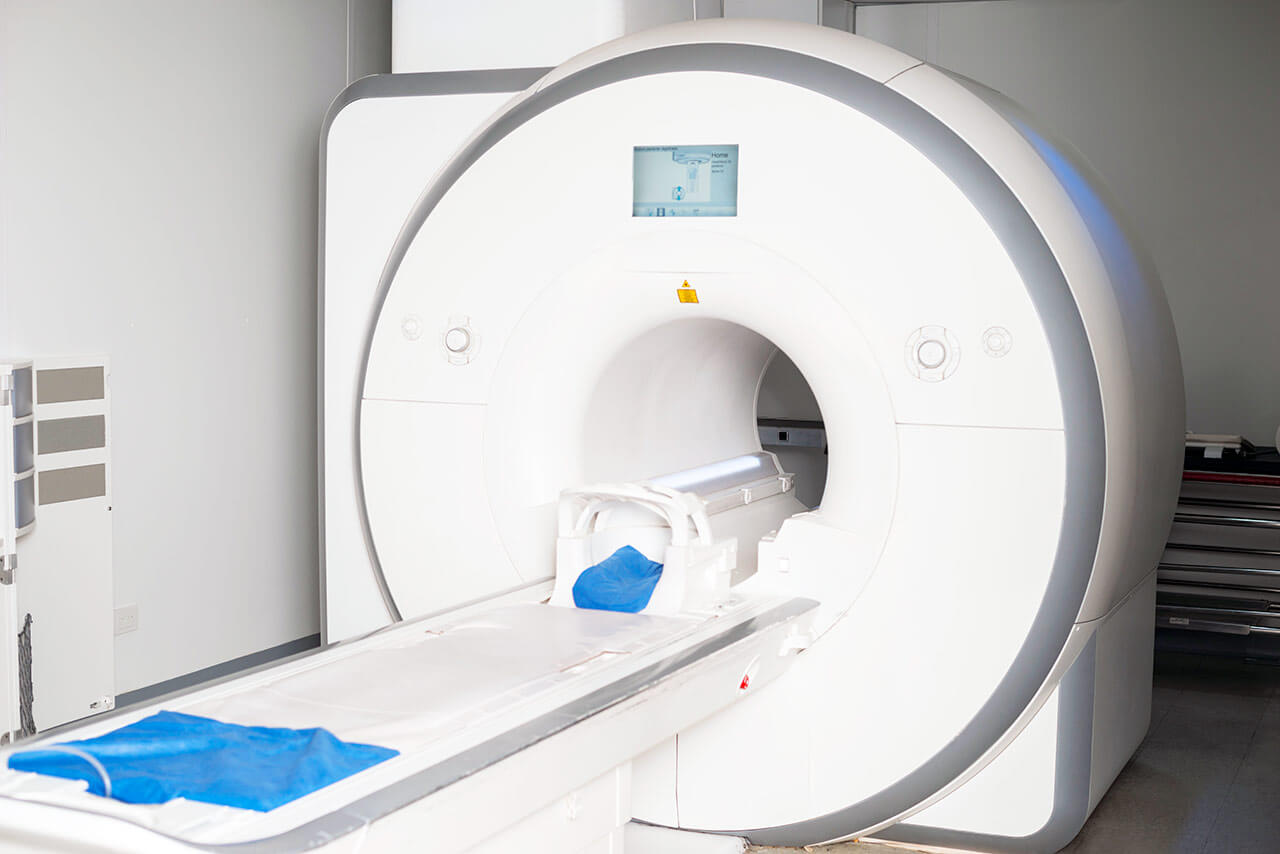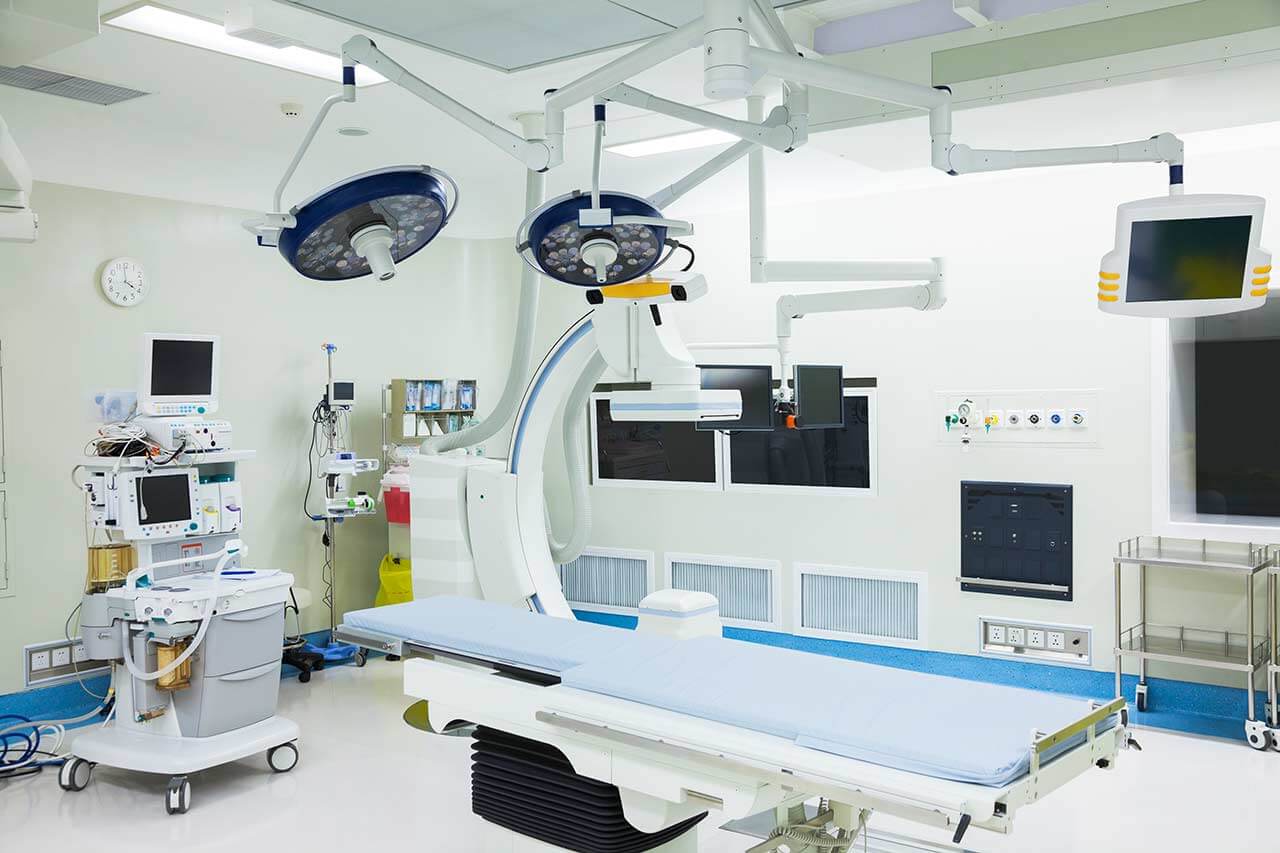
The program includes:
- Initial presentation in the clinic
- clinical history taking
- physical examination
- laboratory tests:
- complete blood count
- general urine analysis
- biochemical analysis of blood
- TSH-basal, fT3, fT4
- tumor markers
- indicators blood coagulation
- CT / MRI of the abdomen
- abdominal ultrasound
- preoperative care
- surgery treatment of testicular yolk sac tumor
- histologically and immunohistochemically examination
of the remote tissues - symptomatic treatment
- control examinations
- the cost of essential medicines and materials
- nursing services
- full hospital accommodation
- explanation of future recommendations
Required documents
- Medical records
- MRI/CT scan of the abdomen and pelvis (if available)
- Biopsy results (if available)
Service
You may also book:
 BookingHealth Price from:
BookingHealth Price from:
About the department
The Department of Pediatric Surgery and Urology at the Nuremberg Hospital offers high-quality surgical treatment for young patients. The department provides care to children of all age groups, ranging from newborns to adolescents up to 18 years old. Special attention in the department's clinical practice is paid to the repair of congenital malformations of the gastrointestinal tract, lungs, and chest wall. The department's surgeons successfully perform operations for duodenal, anorectal, and esophageal atresia, Hirschsprung's disease, abdominal wall defects, diaphragmatic hernias, and other pathologies. The department also has a team of pediatric urologists whose area of responsibility is the repair of congenital malformations of the urinary system in both boys and girls and genitalia in boys. In addition, the department provides medical care to children with injuries of varying severity and burns. The specialists make every effort to restore the health of young patients in a pleasant and friendly atmosphere. Surgical treatment is available both on an inpatient and outpatient basis. Whenever possible, sparing laparoscopic techniques are used. The medical facility treats about 4,000 young patients every year. The department is headed by Dr. med. Karl Bodenschatz.
The department's surgeons specialize in the treatment of congenital malformations of organs in the abdominal cavity in children. One of the key clinical interests is the treatment of esophageal atresia. This condition is a congenital malformation in which the upper and lower parts of the esophagus do not connect. Many children with this anomaly also have a tracheoesophageal fistula, which is an abnormal connection between the esophagus and trachea. The only treatment for esophageal atresia is surgery. As a rule, it is almost impossible to detect the malformation during prenatal ultrasound scanning, so it is diagnosed after birth. The main method of diagnostics is a chest X-ray. The department's doctors also conduct a physical examination, ultrasound examinations of the heart, kidneys, and spine, as well as magnetic resonance imaging. Should the diagnosis be confirmed, surgery will be performed as soon as possible. The department's surgeons use a thoracoscopic approach whenever possible, ensuring minimal trauma to healthy tissues and a quick recovery for the child in the postoperative period. When performing the intervention, the specialists eliminate a pathological connection between the esophagus and trachea, after which they join the ends of the esophagus segments. Following the operation, a child remains in the intensive care unit under medical supervision.
The department's surgeons also have excellent qualifications in the treatment of lung diseases and chest wall deformities. The medical center has gained vast experience in the repair of pectus excavatum. This congenital pathology is characterized by the retraction of the anterior part of the sternum and ribs, while the shape and depth of the defect may be completely different. The deformity is not only a serious aesthetic problem but also carries risks for the child's health, including breathing difficulties, heart dysfunction, spinal curvature, and back pain. The department's surgeons offer young patients two treatment options, namely conservative and surgical ones. Conservative therapy consists of repairing the deformed thorax with the help of a vacuum bell. This treatment option is, however, only suitable for patients with mild forms of pectus excavatum. The second treatment option is the Nuss procedure. This surgery is performed using minimally invasive techniques and provides patients with excellent outcomes.
A special focus of the department's clinical activities is the treatment of urologic diseases in children. The department's surgeons successfully perform operations for acute scrotum, urethral valves, undescended testicles, testicular torsion, hydronephrosis, hydrocele, hypospadias, phimosis, vesicoureteral reflux, and other pathologies. Almost all surgical interventions on the urinary system and genitalia in boys are performed using minimally traumatic techniques. In many cases, operations are done on an outpatient basis without a mandatory hospital stay.
Children require special attention and specific approaches to treatment. Young patients may sometimes be highly sensitive to medical procedures. The department’s medical staff is well trained to provide psychological support to children during the entire therapeutic process.
The department's range of medical services includes:
- Pediatric surgery
- Surgical repair of congenital gastrointestinal malformations
- Esophageal atresia
- Duodenal atresia
- Anal atresia
- Hirschsprung's disease
- Congenital abdominal wall defects: gastroschisis and omphalocele
- Diaphragmatic hernias
- Hypertrophic pyloric stenosis
- Necrotizing enterocolitis
- Surgical treatment of gastrointestinal diseases
- Appendicitis
- Intestinal obstruction
- Intussusception
- Inguinal and umbilical hernias
- Meckel's diverticulum
- Surgical repair of congenital chest wall deformities
- Pectus excavatum
- Congenital pulmonary airway malformation
- Pulmonary sequestration
- Surgical treatment of chest diseases
- Pleural empyema
- Pneumothorax
- Surgical treatment of diseases of the liver, biliary tract, and pancreas
- Gallstone disease
- Biliary atresia
- Pancreatic cysts
- Liver tumors
- Surgical treatment of injuries of varying severity in children, including multiple injuries
- Surgical treatment of burns and scalds, including laser treatment for hypertrophic scars after burns and scalds
- Surgical treatment of neck cysts and fistulas
- Surgical repair of congenital gastrointestinal malformations
- Pediatric urology
- Surgical treatment of diseases of the urinary system in boys and girls
- Urethral valves
- Megaureter
- Ureteropelvic junction obstruction
- Vesicoureteral reflux
- Hydronephrosis
- Surgical treatment of genitourinary diseases in boys
- Acute scrotum
- Cryptorchidism
- Testicular torsion
- Hydrocele
- Hypospadias
- Phimosis
- Varicocele
- Surgical treatment of diseases of the urinary system in boys and girls
- Other medical services
Photo of the doctor: (c) Klinikum Nürnberg
About hospital
According to the reputable Focus magazine, the Nuremberg Hospital ranks among the top German medical facilities!
The hospital is one of the largest, highly specialized medical centers in Europe and positions itself as the maximum care hospital. The healthcare facility is an academic hospital of the Paracelsus Medical University in Nuremberg. It houses 42 departments, institutes, and highly specialized centers focusing on various medical fields. All the hospital's employees work hand in hand for the benefit of their patients. The specialists strive to provide top-class medical care for every patient. Moreover, the medical team always shows a humane attitude and understanding towards the patient's life situation, making every effort to support them during the entire therapeutic process.
The total number of beds in the hospital is 2,233. The medical team consists of more than 8,400 employees, including many world-famous doctors and professors who had their clinical training at the best medical facilities in Germany, other European countries, and the USA. The hospital admits more than 100,000 inpatients and more than 170,000 outpatients annually. The number of patients who come to the hospital steadily increases every year, which is the best confirmation of its high standards and outstanding treatment results.
The cornerstone of successful clinical practice is state-of-the-art technical infrastructure. The hospital offers its patients innovative technologies such as the Da Vinci surgical system, devices for stereotactic procedures, intraoperative radiation therapy, angiography, PET CT devices, high-intensity focused ultrasound, 64-slice CT scanners, and other advanced medical devices. The combination of cutting-edge technical facilities and the high competence of the physicians allows for the provision of effective treatment even in the most complex cases.
The Nuremberg Hospital is undoubtedly one of Germany's leading medical facilities, where patients benefit from modern infrastructure, precise diagnostics, effective treatment, and responsive care.
Photo: (с) depositphotos
Accommodation in hospital
Patients rooms
The patients at the Nuremberg Hospital live in comfortable single and double rooms. Each patient room is equipped with an ensuite bathroom with a shower and a toilet. Standard rooms include an automatically adjustable bed, a bedside table, a wardrobe for storing clothes, a table and chairs for receiving visitors, a TV, and a radio. The hospital also offers Wi-Fi.
If desired, patients can live in enhanced-comfort rooms. Such patient rooms are more spacious, and their furnishings correspond to the level of an upscale hotel.
Meals and Menus
The patients at the hospital are offered tasty and balanced meals three times a day: breakfast, lunch, and dinner. The patients have a daily choice of three dishes for lunch and dinner, while breakfast is served as a buffet.
If, for some reason, you do not eat all foods, you will be offered an individual menu. Please inform the medical staff about your food preferences prior to treatment.
Further details
Standard rooms include:
Accompanying person
Your accompanying person may stay with you in your patient room or at the hotel of your choice during the inpatient program.
Hotel
You may stay at the hotel of your choice during the outpatient program. Our managers will support you for selecting the best option.





